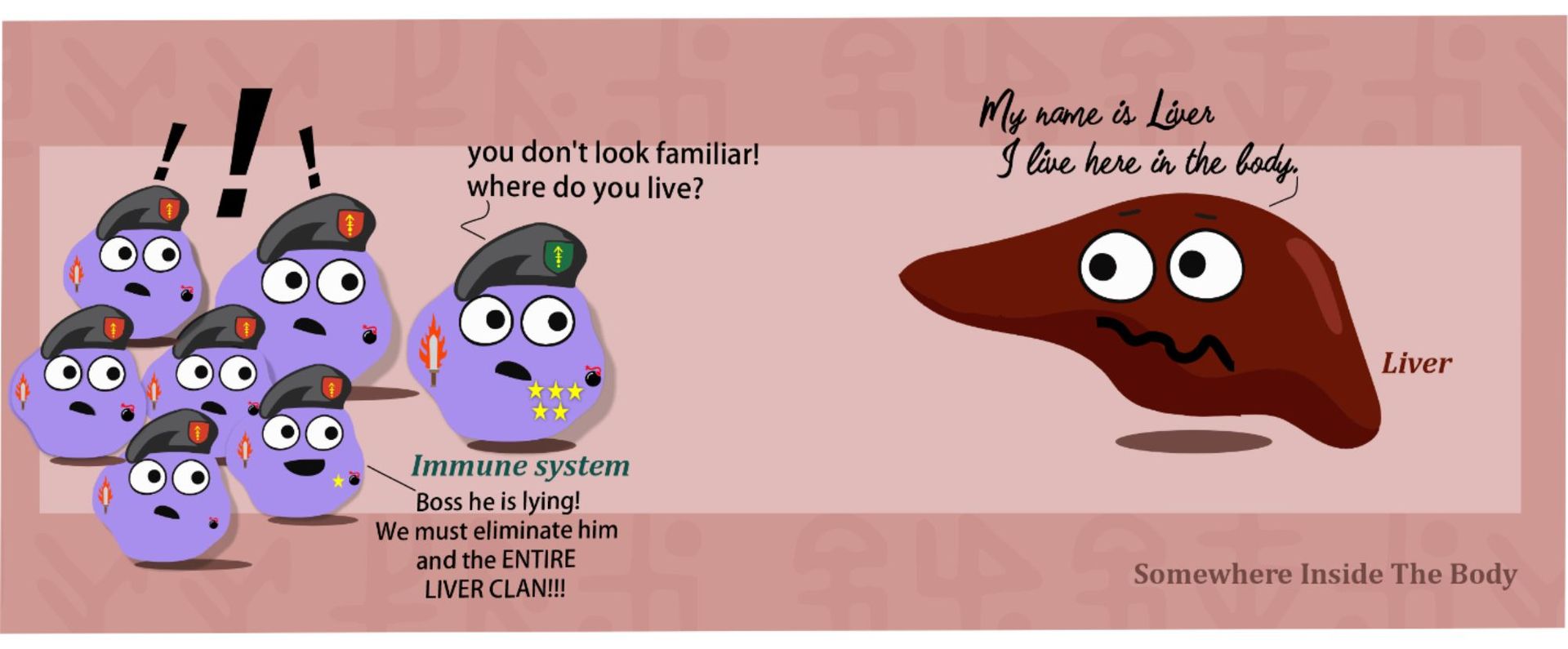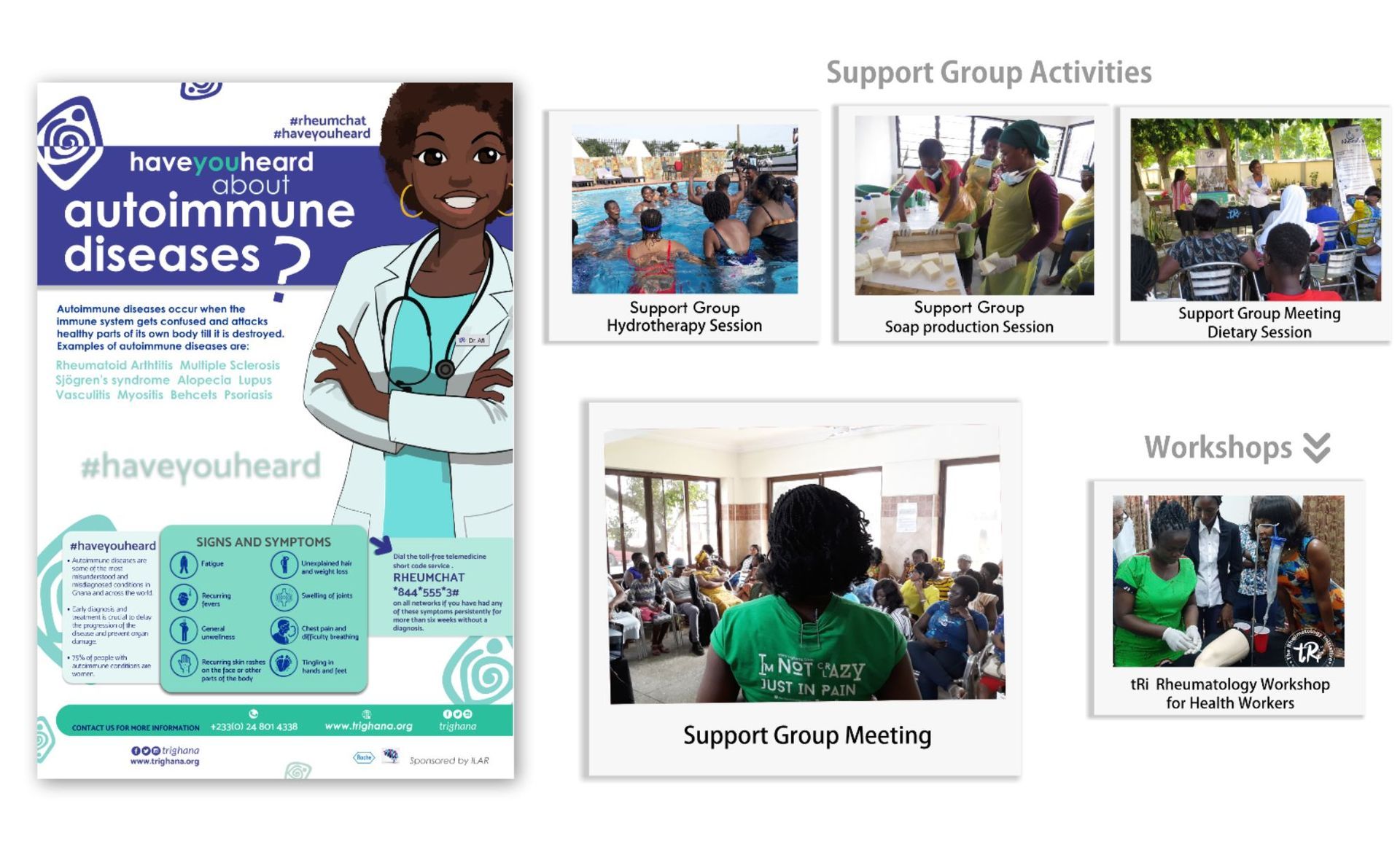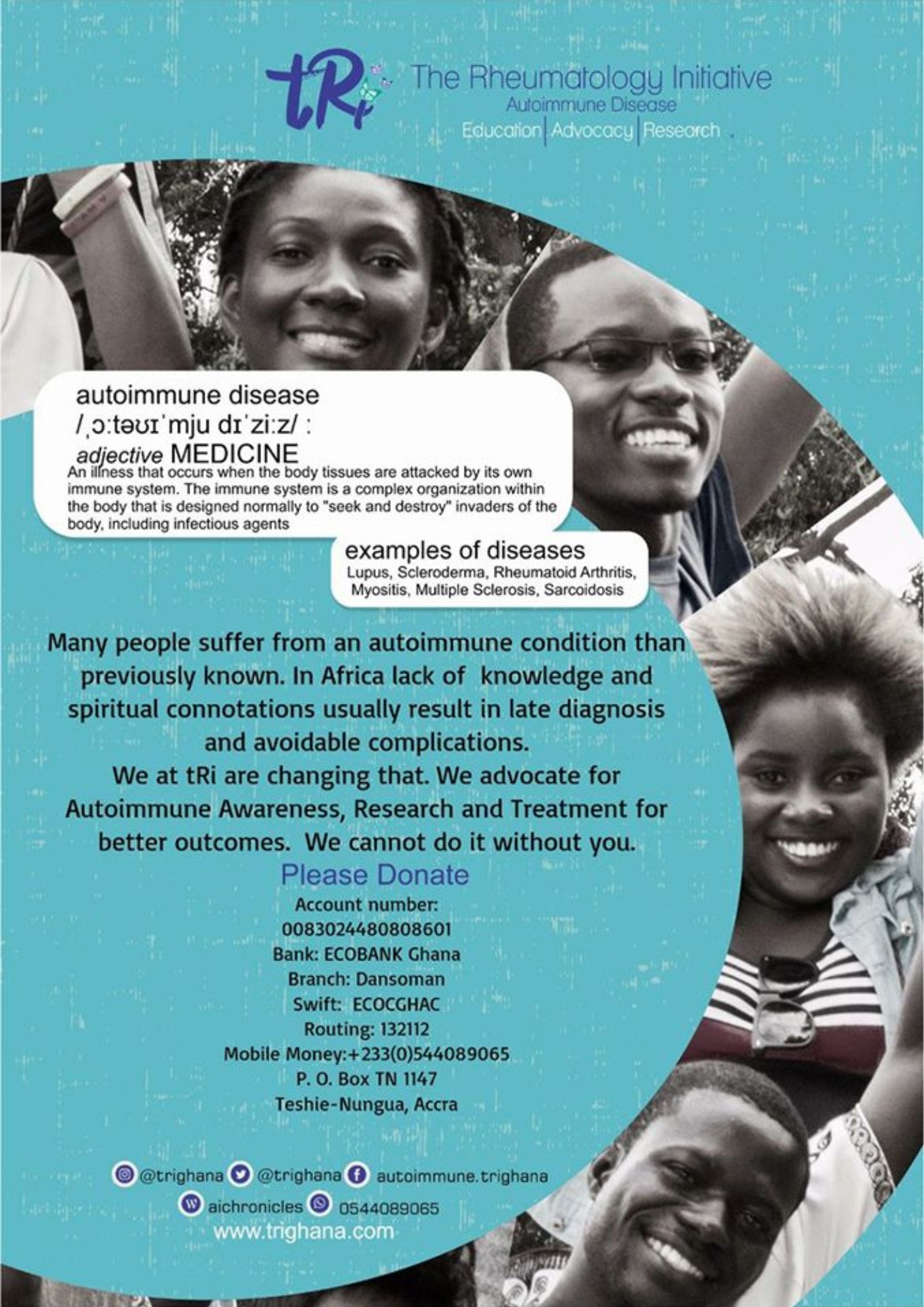Autoimmune diseases - When the body fights itself.
I struggled to explain to the gentleman who brought his wife to the clinic what an autoimmune disease is, as against his strong belief in a spiritual source of his wife’s illness. I could understand his sceptical look as he looked at me as if to say, “All these, and you say it’s not spiritual!!”. As an African, with our natural belief in the spiritual and supernatural, the thought of a disease that is caused by the body attacking itself understandably begins to sound mystical.
So, what are autoimmune diseases?
The word “auto” is a Greek word meaning self.
Your body’s immune system protects you from disease and infection. But if you have an autoimmune disease, your immune system cannot differentiate between your body's healthy and harmful cells. The immune system becomes overactive and attacks and destroys the healthy cells by mistake. It does this by producing substances called antibodies that target the body’s tissue.
Autoimmune diseases together constitute the fourth largest cause of death among women. It affects more people than heart disease. It is poorly understood, poorly recognised and of apparent increasing incidence worldwide, including Ghana . There is, therefore, a need to raise more awareness about such diseases as they can cause a lot of damage both physically and psychologically to both patients and their caregivers.

What causes it?
Autoimmune disorders are still one of the big medical mysteries, and though scientists are still trying to decipher what causes it, they believe an interaction of genes and the environment is to be blamed. Some run in families, but most appear without warning or clear cause.
A few recent studies suggest that overeating salt can predispose you to have autoimmune diseases such as multiple sclerosis, and smoking causes rheumatoid arthritis, adding evidence to the belief that lifestyle choices and other environmental factors are behind the rise.
Genetics
People with autoimmune diseases are predisposed to develop an overreactive immune response. Even with a genetic tendency, a person may not develop an autoimmune disease without an environmental influence or physical trauma to set it off.
Environmental
Despite the genetic predisposition, most people would not develop the disease until there is an environmental trigger that sets the over active immune system off. These environmental influences include:
- Infections: Bacterial or viral. Initial theories suggested parasitic infections may be protective, hence the low incidence in Africa, where such infections have abound in the past.
- Drugs: certain drugs are known to trigger off some diseases e.g. drug-induced lupus may be triggered by some antibiotics or antihypertensive drugs
- Toxins, including petroleum products and pesticides, have been implicated in causing some diseases.
- Sex: autoimmune conditions tend to have a female preponderance, about 75% of all cases may be women. These are usually pubertal or of childbearing age, so hormonal factors are thought to be a cause.
- Stressful life events can also trigger these conditions.
Some diseases and potential triggers are listed;
- Lupus: hair dye and certain drugs, smoking
- Scleroderma: silica exposure
- Diabetes: gluten, coxsackie virus
- Rheumatoid Arthritis: Infections, smoking
- Thyroid: smoking
- Multiple Sclerosis: hepatitis B infection
Classification:
They can affect only one organ, e.g., Diabetes mellitus type 1, where the pancreas is affected, leading to reduced or absent insulin, which is needed to process sugar; Graves disease, where it affects the thyroid gland; or multiple sclerosis, where the covering of the nerves in the brain and spinal cord is affected, leading to episodes of nerve dysfunction causing blindness, limb weakness, etc.
It could also be systemic, that is, more widespread, affecting many organs at once or sequentially, e.g., Lupus, Rheumatoid arthritis, and polymyositis, which can affect organs such as the joints, muscles, brain, kidneys, and lungs.
Symptoms and signs:
This would depend on the organ affected, but common symptoms include:
Malaise, fatigue, rashes, hair loss, febrile illness, recurrent miscarriages, visual impairment, joint swellings or pain, memory loss, limb weakness, strokes.
Diagnosis:
This depends on:
- Accurate history of the illness
- Physical examination by the doctor
- High index of suspicion
Investigations:
It is important to understand that there is no particular test (with a result that is either positive or negative) that can confirm or deny a diagnosis of an autoimmune disease. The doctor must consider the patient’s medical history and all other signs and symptoms being experienced. This would probably vary depending on the system involved.
When you have an autoimmune disease, your body produces antibodies against some tissues. Diagnosing an autoimmune disease involves identifying which antibodies your body is making, such as Antinuclear antibody tests (ANA). This autoantibody test looks for antinuclear antibodies, which attack the nuclei of cells in your body.
Treatment
There is currently no cure for these chronic autoimmune conditions. Controlling the progression of the disease and decreasing the symptoms, especially during periods of increased activity are the main goals of treatment and disease management. If you have an autoimmune disease, you and your doctor will have to work together to create a plan to manage your symptoms.
Treatment methods depend on the disease, but in most cases one main goal that is common to most autoimmune diseases is the reduction of inflammation.
The treatment of autoimmune diseases is typically with immunosuppressive medications, which are used to reduce the hyperactive immune reaction.
Facts About Autoimmune Diseases in Ghana
1. Prevalence and Gender Disparity
Globally, autoimmune diseases disproportionately affect women, and Ghana is no exception. Approximately 75% of people with autoimmune conditions are women. This gender disparity is not fully understood, but underscores the need for healthcare providers to be particularly vigilant in monitoring women for signs of autoimmune diseases. However, the lack of widespread knowledge about these conditions means that many women suffer in silence or are misdiagnosed and men may be diagnosed late.
2. Challenges in Diagnosis
One of the most significant challenges facing autoimmune patients in Ghana is the difficulty in obtaining an accurate diagnosis. On average, autoimmune patients see four different doctors over a three-year period before they receive a correct diagnosis. This prolonged period of uncertainty can lead to worsening symptoms and a decline in quality of life. The lack of specialized healthcare professionals, such as rheumatologists, exacerbates this issue. With only three rheumatologists serving a population of 29 million Ghanaians, access to specialized care is severely limited, making early diagnosis and treatment even more challenging.
3. Increasing Prevalence
Over the past two decades, there has been a noticeable increase in the number of people diagnosed with autoimmune conditions in Ghana. The reasons for this rise are not fully understood, but it is suspected that environmental factors, lifestyle changes, diet, and increased life expectancy may play roles. As more Ghanaians live longer, they may be more likely to develop chronic conditions, including autoimmune diseases.
4. Severity and Life-Threatening Risks
Autoimmune diseases can become life-threatening, particularly when they are not diagnosed until significant organ damage has occurred. In Ghana, late diagnosis is a common issue due to a lack of awareness among both the medical community and the general public. Patients are often diagnosed at advanced stages of the disease, when irreversible damage may have already been done. This highlights the urgent need for better education and training for healthcare providers and increased public awareness.
5. Misunderstanding and Stigmatization
Autoimmune disease patients often appear outwardly healthy, leading to their symptoms being ignored or dismissed. Because many autoimmune conditions have symptoms that are not visible, patients may appear healthy despite being severely ill. As a result, their symptoms are frequently dismissed as being "in their heads" or attributed to stress. A worldwide survey found that 62% of autoimmune patients had been labelled as chronic complainers or were told they were overly concerned with their health in the earliest stages of their illnesses. This stigmatization can delay diagnosis and treatment, leading to worse outcomes. In some communities in Ghana, autoimmune diseases are mistakenly attributed to witchcraft, curses, or supernatural causes. This belief can lead to stigma and discrimination against those affected by these conditions.
6. Access to Care
Access to adequate care is another significant challenge for autoimmune patients in Ghana. Many patients must travel long distances and endure extended wait times to see a specialist. This is particularly true for those who need to see a rheumatologist, as the shortage of these specialists means that patients may have to wait months for an appointment. The combination of long travel distances, high costs, and extended wait times can be overwhelming for patients, particularly those who are already dealing with the physical and emotional toll of their illness.

The Role of the Rheumatology Initiative (tRi)
The Rheumatology Initiative (tRi) is a non-governmental organization in Ghana that supports people living with autoimmune diseases and increases awareness about these conditions. Founded by Dr. Dzifa Dey, a rheumatologist, tRi has become a beacon of hope for many patients who would otherwise struggle to find information and support.
tRi focuses on several key areas: patient education, advocacy, and research. The organization provides educational resources and run support groups to help patients understand their conditions and manage their health, share experiences and find comfort in knowing they are not alone. They also advocate for better healthcare policies and access to treatment for people with autoimmune diseases in Ghana.
Through workshops, seminars, and social media campaigns, tRi is actively working to dispel myths and educate the public about autoimmune diseases. These initiatives are crucial in a country where misinformation and stigma can have devastating effects on the lives of those affected by autoimmune diseases.
For more information reach tRi at www.trighana.com, @trighana on all social media platforms.











